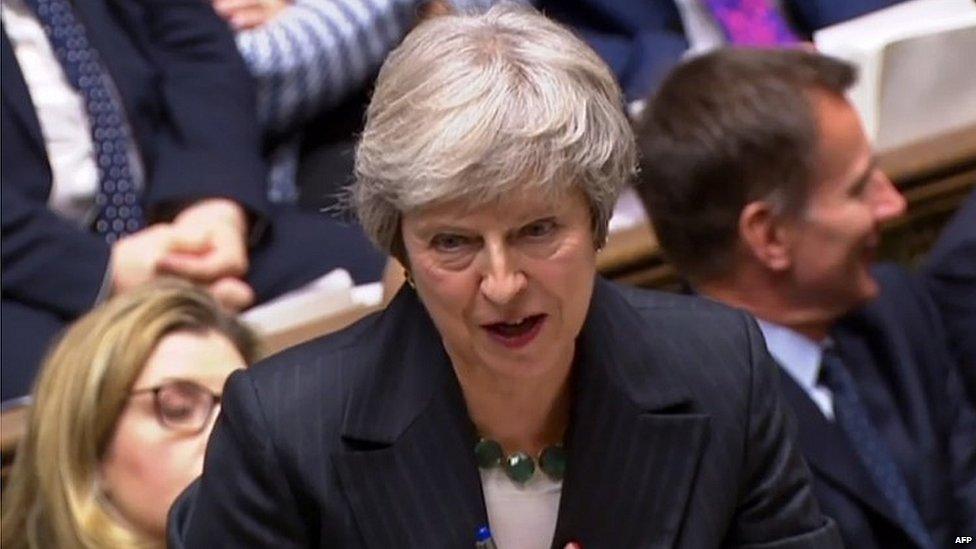Will they, won't they and then how will they?
- Published

One cabinet minister, in particular, has been saying privately to me for two years, and probably to anyone else that would listen, that the deal with the EU will only be done at the eleventh minute, in the eleventh hour, on the eleventh day, at the so on and so on and so on and so on - you get the picture.
That's, according to them, how the EU always works, and it is only at that last dreaded moment that there will be enough urgency for everyone around the table to forget their differences and get the thing done.
If you follow along with that analogy, tonight's change of plan is playing out exactly according to that script.
Some may even argue that resistance from EU countries like France and Spain, especially over fishing rights, will only help the Prime Minister in her attempt to sell the deal once (if) it's signed off. Look Brexiteers, look how hard I had to fight! I have annoyed the French - hurrah!
(As my Brussels colleagues point out too, these jitters play well in other European countries too where leaders often succumb to the same temptation as UK politicians - complaining sometimes, loudly, about the strictures of the EU that, claims that can help them out politically at home).
There are real issues at stake, over Gibraltar, over fish, over the EU's distaste for the UK's preferred model of the "common rule book" - it comes down to the same argument about the UK being a friend with benefits, and not enough of the obligations that comes along with the goodies.
But the sense tonight, which of course could change very quickly, from Number 10 at least, is that these are last minute squeals rather than brand new problems that could see the whole thing implode.
Even so, Theresa May will fight anything that makes it harder for the package to get through Parliament. And if we stick to that cabinet minister's script for a moment, the bigger challenge than herding the continental cats, will be getting enough MPs on board.
Goodness knows, with dozens of Tory MPs on the record saying they will vote against the deal, the opposition parties lining up to condemn it, it is extremely hard right now to see the deal passing through.
Senior figures in Number 10 believe it is still possible, with a change in dynamic once the thing is signed, and no doubt, enormous political pressure from inside and outside the Tory Party brought on their MPs.
Cabinet ministers are split on whether it can happen. Two in the last day or so have told me the deal might just about make it in the final vote, pencilled in for somewhere around the 10th, 11th or 12th of December. That might sound crazy now, but I also can't emphasise enough how we cannot right now imagine ourselves in the minds of MPs in a fortnight's time.
But in that same twenty four hours two cabinet ministers have said the total opposite privately that there is simply no way it can pass.
And another member of Cabinet, admittedly not the deal's most ardent fan, suggested that Number 10 have become blinkered to reality saying, it's like Downing Street is "a couple stuck in a bad marriage".
"They are the only people who can't see that it isn't working and they should just admit it and split up. When they do they say to everyone they know, 'why didn't you tell us?'
That means that government figures are discussing the possibility of a second vote on the deal.
Not another referendum, but having another go in Parliament. There is discussion about this in Number 10, I'm told, and one minister told me "we are looking at this as a possible way out".
The thinking is that it would be easier in particular for Labour MPs to come on board. In other words, protest first time round, but then come on side to choose a deal, rather than no deal, when a similar question is put.
But despite chatter about this being some kind of preferred option for the government, because the turmoil the deal's rejection might unleash could be the "proof" required to get it through a second time, I'm told categorically that "no one is looking at this with any enthusiasm".
Deluded or not, there is still a hope, if not a conviction in some parts of government, that the deal might (just) be able to pass.